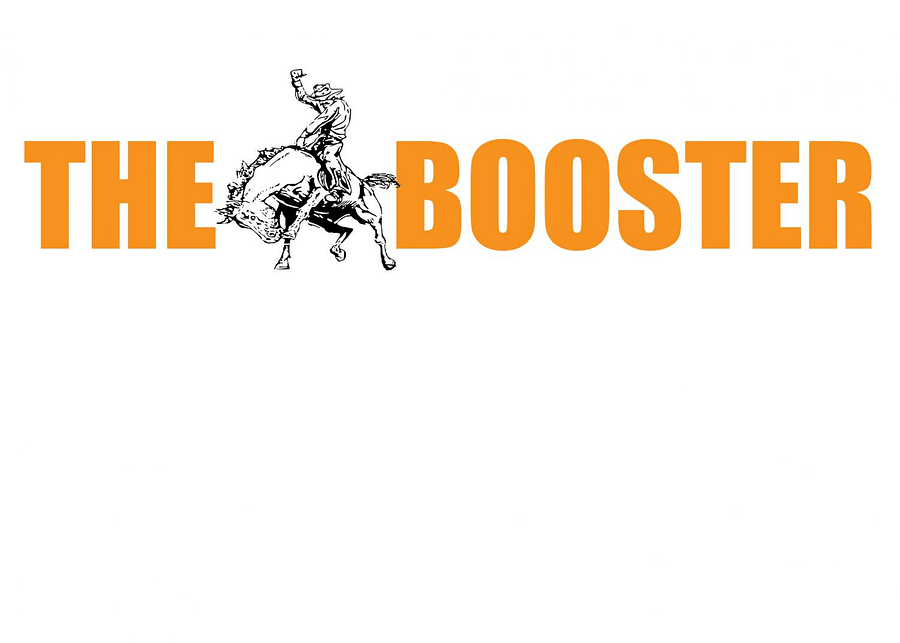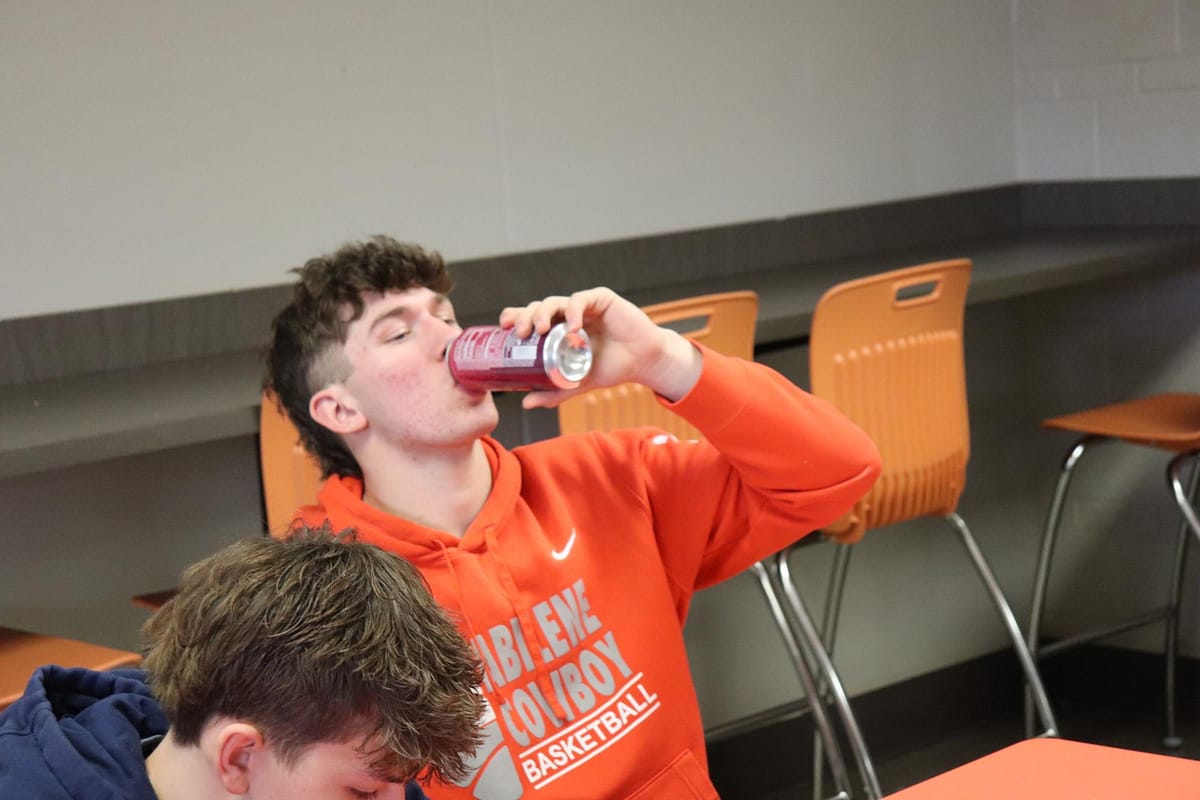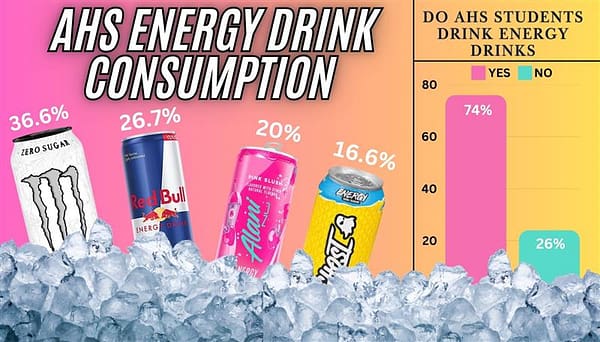You walk into school late. Your hair is wet from the quick shower you took before rushing to school. Your eyes are still heavy from sleeping through your alarm. As you head to your 1st block with an excuse slip, you pass by the vending machine. Taking money out of your pocket, you buy an Ice Energy Drink. One can’t hurt, right?
Well, It can. According to the Food and Drug Administration (FDA), too much caffeine in children and teens can cause increased heart rate, heart palpitations, high blood pressure, and anxiety, and lead to sleep problems, digestive problems, and dehydration. In extreme cases, energy drinks can even cause death. They are especially harmful to athletes. There are many short-term and long-term negative effects for athletes who drink Ice or any other similar caffeine product.
“[student athletes] who use these drinks get dehydrated. Which causes cramps, which means now they have to come off the field or court,” head football coach Brad Nicks said. “What they’re trying to get is a boost of energy, but what it does is take away from their performance.”
Coach Nicks isn’t the only coach at Abilene High School that has negative things to say about energy drinks related to athletic performance.
“[student athletes] are drinking too much caffeine. We’re already working out and increasing our heart rate, adding caffeine to the mix makes our hearts work even harder,” assistant girls’ basketball coach Traci Rogers said.
Coach Rogers had alternatives to consuming drinks that contained high amounts of caffeine.
“If [athletes] are feeling like they don’t have enough energy they should change their diet and get more sleep,” Coach Rogers said.
Coach Nicks has his alternatives to caffeine as well.
“Nothing beats water—Gatorade and Powerade before performance. After the performance, protein drinks, and chocolate milk,” Coach Nicks said.
Students might be aware of the risks that caffeine products present but aren’t concerned enough to try alternatives.
“I don’t care about the risks enough,” junior football player Jalen Robinson said. “I drink energy drinks every day.”
In addition to athletes being apathetic towards alternatives, energy drink companies market themselves to seem safer than they are, which causes athletes to consume these drinks even more.
“Whether present in natural sources or Red Bull Energy Drink your body processes caffeine the same way,” according to the Red Bull website.
The quote makes it seem like drinking Red Bull won’t cause problems with how much caffeine it contains, which is untrue according to the FDA. Red Bull and other companies that are similar also use advertisements featuring professional athletes to bolster their reputation as a drink healthy enough to be consumed for physical activity.
“Red Bull Energy Drink is appreciated worldwide by top athletes, busy professionals, college students, and travelers on long journeys,” according to the Red Bull website.
Despite energy drink companies marketing themselves as safe, they are not. It is important for student-athletes to be aware of the negative effects these drinks present and to find alternatives. Next time you think about buying an energy drink, remember that one can hurt.








